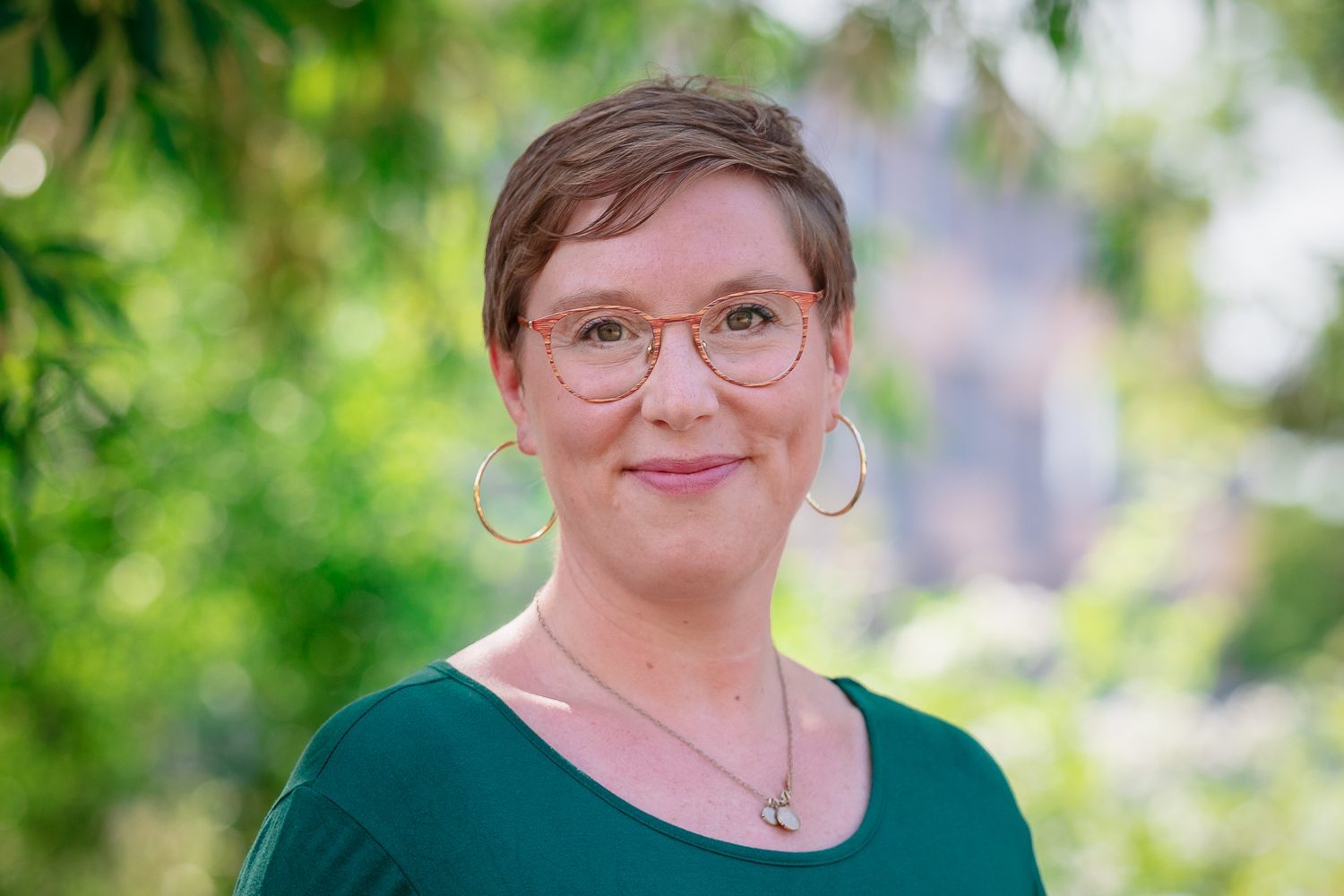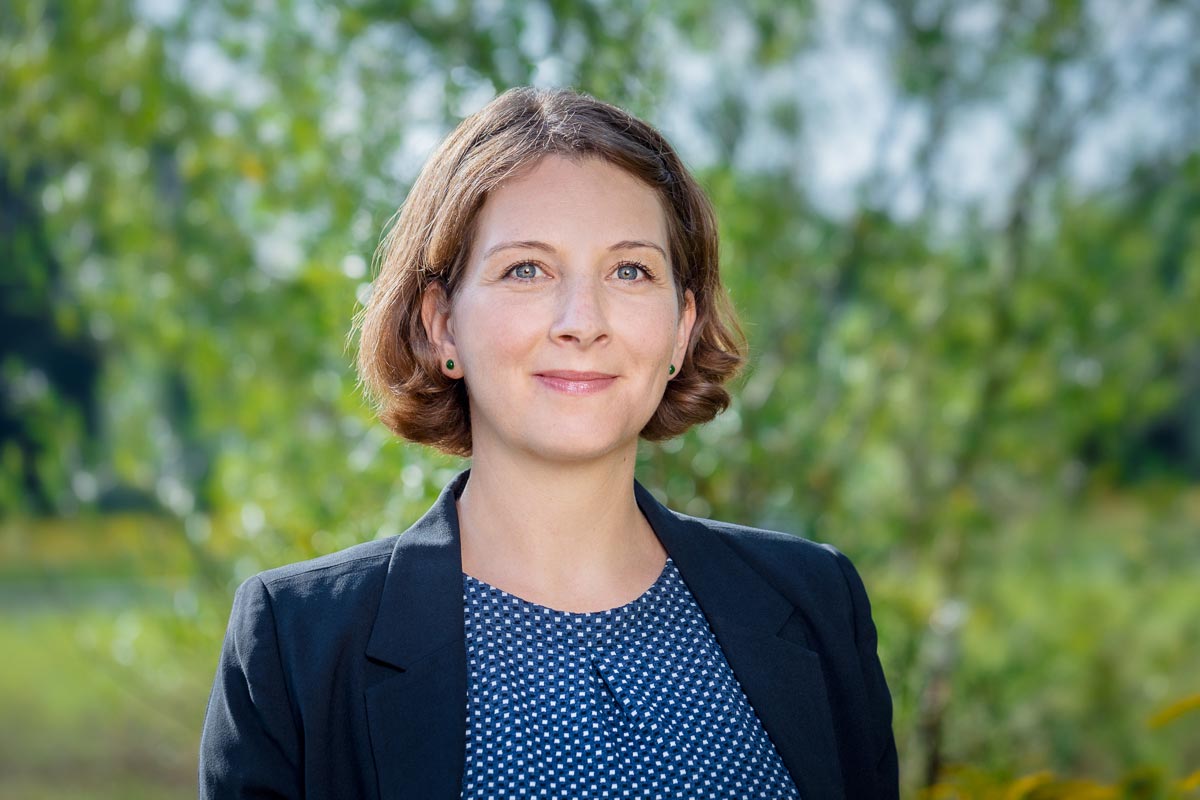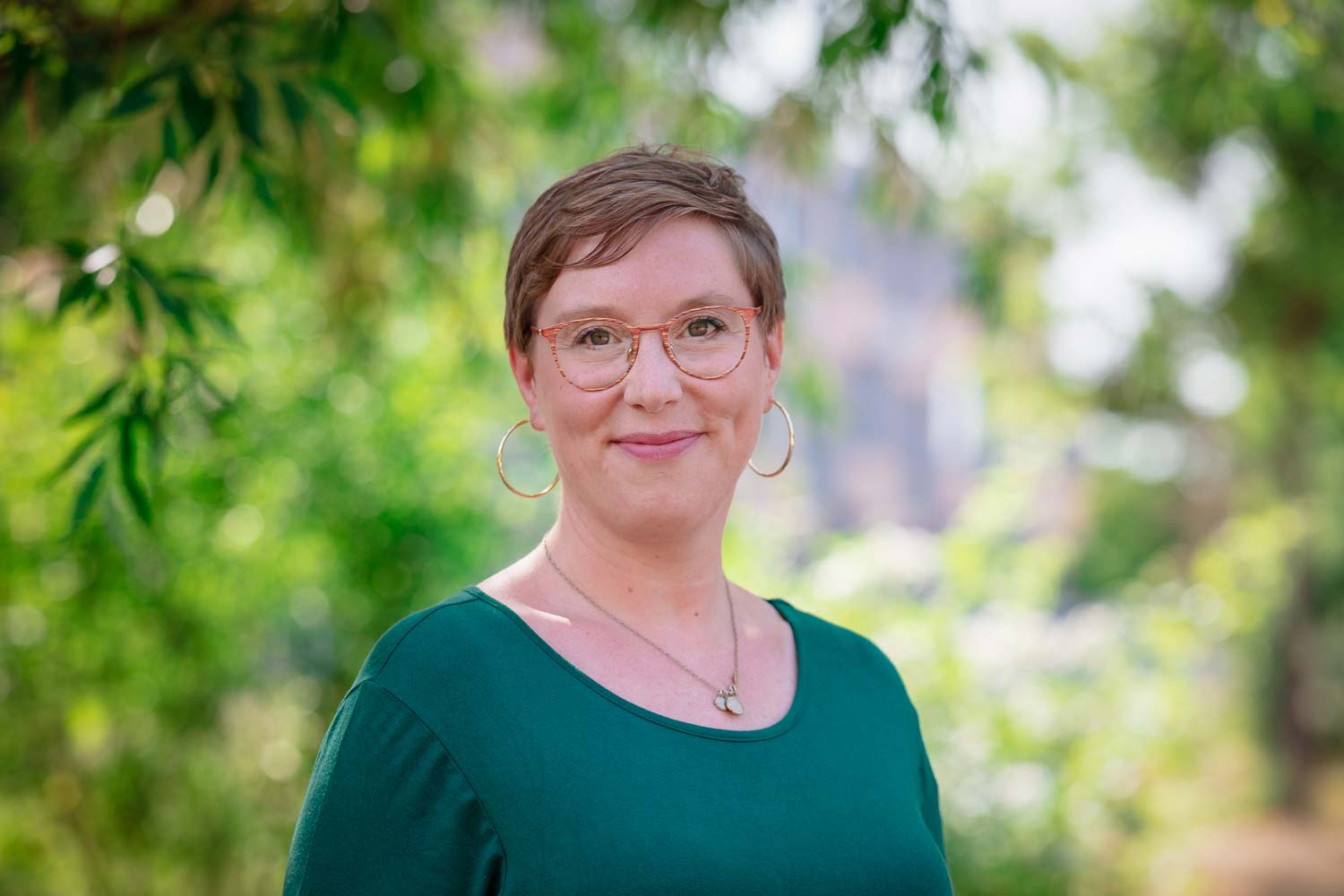
»Only those who invest in their own well-being are capable of excellence« – Tina Stavemann heads the Potsdam Science Park’s health management
The potential of the Potsdam Science Park lies in the people who work there. To ensure that scientists, students and entrepreneurs do not burn out, the park, the university and its institutes are committed to their health. Tina Stavemann from the Potsdam Science Park and Adina Ludwig from the University of Potsdam explain which ailments occur more frequently during office and laboratory work, why sex- and gender-sensitive health is a must and what offers they would like to use to reach the park’s employees.
Over 10,000 of Potsdam’s more than 182,000 inhabitants work in a scientific institution. Together, they not only influence the demographics of the city, but are themselves shaped by the conditions of their jobs, including their health. Today, it is commonly recognized that office or laboratory work can be just as stressful to the body and mind as physical work. That is why many scientific or science-related institutions, such as the Potsdam Science Park or the University of Potsdam, are working to enable healthy working environments and habits.
Broad spectrum of health programs and initiatives
Tina Stavemann organizes the health management for the Potsdam Science Park. She has a good overview of the programs of all the institutions in the park. The University of Potsdam alone, which, together with the City of Potsdam, is a shareholder of the Potsdam Science Park, has two other health management programs: the ›Feel Good Campus‹ for students as well as the occupational health management and the ›Health Steering Committee‹ for employees. In addition, there are the in-house services of the Fraunhofer and Max Planck Institutes and the Brandenburg State Archives in the Potsdam Science Park. »And of course, private initiatives are also being set up again and again in work groups and departments, especially for sport and exercise, such as classic running groups«, says Stavemann. »In addition, the offers of the Academic Sports Centre are also open to employees«, adds Adina Ludwig, who coordinates the occupational health management at the University of Potsdam.
Since the occupational health management of the institutions in the Potsdam Science Park is only directed at their employees and self-initiatives often remain in small circles, the Potsdam Science Park offers an overarching health management for all employees and students at the location. The offers include workshops in German or English on various topics such as nutrition, sex- and gender-sensitive health, mental health or healthy team and self-management, regular blood donation campaigns and company first aid training. In these offerings, the Potsdam Science Park regularly cooperates with its partners, the Techniker and Barmer health insurances.

Adina Ludwig coordinates the occupational health management at the University of Potsdam © Adina Ludwig
Health in university and research institutions: Making diversity visible and offering support
The offers respond to the diverse health challenges faced by employees at the Potsdam Science Park and the University of Potsdam. Their aim is to strengthen existing resources. Adina Ludwig explains: »Of course, we see the ›classic‹ health issues of office and lab work, such as back and neck pain.« In addition, one of the most common concerns of employees is dealing with stress. »The commitment of researchers is generally very high. These people often do pioneering work and dedicate themselves to their projects with a lot of personal commitment. The employees from technology and administration, who make excellent research possible in the first place, also bear a great deal of responsibility«, says Ludwig: »This often goes hand in hand with high performance demands and intensive workloads.« This was particularly noticeable during the Corona pandemic: »Employees with children faced additional challenges during this time. The increased care work such as childcare and homeschooling made it difficult for many employees to maintain their usual workload. Trying to be equally successful in both areas of life led some to their own limits. Therefore, it is important for us to start early with our preventive offers. We place great emphasis on strengthening the health skills and resources of our employees.«
To be successful, says Tina Stavemann, the health offers of the Potsdam Science Park and other institutions aim to reach as many employees as possible. This requires that they take their specific needs seriously. »International researchers are a classic example.« According to Stavemann, this group faces special challenges additional to their usual workloads: »It starts with the fact that they have to completely rebuild the health-network that we all take for granted in our everyday-lives. They need, for example, a family doctor and a dentist who speaks English or their native language. Some may need a chiropractor or a maternity nurse.« In addition, the health care system in many countries of origin of international researchers is organized differently than in Germany. They first have to learn how to deal with the German system. In such situations, Stavemann, who foremost works in the Welcome Service at the Potsdam Science Park, helps those in need to navigate the system and overcome bureaucratic hurdles.
Sex- and Gender-sensitive health – rethinking prevention services
According to Stavemann and Ludwig, a matter close to their hearts is the topic of sex- and gender-sensitive health. This medical approach recognizes that a person’s biological sex and learned behavior in connection to their gender influences their disease pattern. Adina Ludwig cites the classic example of a heart attack: »An impending heart attack often manifests itself very differently in men and women. Men complain about pain in the chest or left arm, women more about back pain, pain in the upper abdomen, nausea and vomiting.« These differences are hardly known, but having them in mind may save a life in an emergency. »With our offers, we want to contribute to bringing this knowledge and the possibilities of preventing and dealing with diseases to our employees in the park. Actively integrating gender-sensitive aspects into company health management is still a fairly new approach and we are very grateful that both health insurance partners actively support us in this«, explains Stavemann.
As another example, men are often under pressure to present themselves as strong and healthy and therefore not to openly show their physical and psychological ailments. As a consequence, they may habitually ignore or conceal symptoms and less often seek consultation with medical professionals. As a result, illnesses may remain undetected for longer. »The institutions located in the Potsdam Science Park usually have a clear STEM orientation. In this field, the proportion of men among the employees is traditionally high. At the same time, we notice that, it is primarily women that partake in our health programs.«
Especially with its workshops, the park’s health management is therefore increasingly addressing the topics that are of particular importance for each gender, for example through a combination of e-learning and a lecture on the topic of ›men’s health*‹ or, as recently, in cooperation with Adina Ludwig and the company health management of the University of Potsdam, in an online workshop on the topic of menstruation and sport (German).
For Tina Stavemann, the health management offers are also an important instrument for strengthening the Potsdam Science Park as a whole. »With our offers, we promote our most important resource: our employees. For researchers, too, it is true that a healthy mind lives in a healthy body. Only those who invest in their own well-being are capable of delivering an excellent performance.«
*In 2023 available in German. Please register, if you would be interested in an English e-learning in 2024.
This blog and the projects carried out by Standortmanagement Golm GmbH at Potsdam Science Park are funded by the European Regional Development Fund (ERDF) and the Federal State of Brandenburg.
Contact

Julia Hinz
Site marketing
julia.hinz@potsdam-sciencepark.de + 49 331 237 351 109
Tina Stavemann
Welcome Service
tina.stavemann@potsdam-sciencepark.de + 49 331 237 351 145